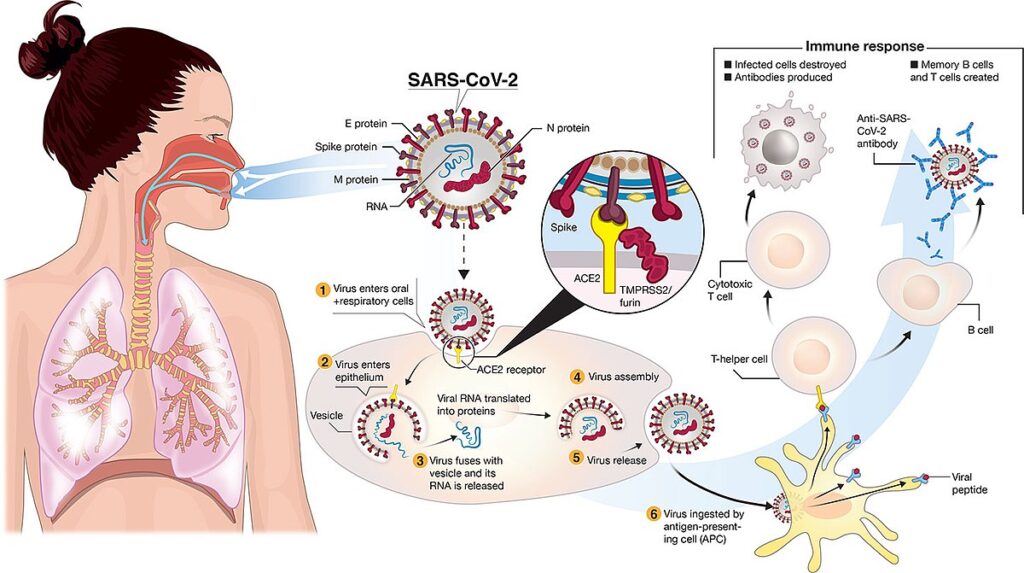
Covid-19
- October 6, 2022
- 5:05 pm
- No Comments
Introduction
You’ve probably heard a lot about the COVID-19 virus in the news lately. It’s been all over the headlines, and for good reason – this new virus is causing a lot of concern around the world. So far, it’s infected more than 170,000 people and killed more than 7,000. But what is COVID-19, exactly? How does it spread? And most importantly, what can you do to protect yourself and your loved ones?
In this article, we’ll answer all of your questions about COVID-19. We’ll cover everything from symptoms to treatment, and we’ll also provide some helpful tips on how to stay safe. Read on to learn more.
What Is COVID-19?
You might be wondering what exactly COVID-19 is. It’s a coronavirus disease that was first identified in 2019.
COVID-19 is caused by the SARS-CoV-2 virus and is highly contagious. It’s spread through contact with respiratory droplets, such as saliva and mucus, from an infected person. And it can be deadly—according to the World Health Organization, it has a mortality rate of about 3%.
Symptoms of COVID-19 include fever, cough, and shortness of breath. Most people who fall sick with COVID-19 will experience mild to moderate symptoms and recover without special treatment. However, some will become seriously ill and require medical attention.
What Are the Symptoms of COVID-19?
Do you know the symptoms of COVID-19? Chances are, you might not be aware of all of them. That’s because this virus is still relatively new, and research is ongoing.
But here’s what we do know. The most common symptoms of COVID-19 are fever, cough, and shortness of breath. In more severe cases, people can also experience nausea, vomiting, and diarrhea.
If you experience any of these symptoms, it’s important to stay home and avoid contact with other people as much as possible. You should also seek medical help right away.
How Is COVID-19 Diagnosed?
When it comes to diagnosing COVID-19, there are a few different tests that can be used.
The first is a rapid test, which can be performed in a doctor’s office or at a hospital. This test looks for the presence of the virus in a person’s nose or throat.
If the results of the rapid test are positive, a second test will be done to confirm the diagnosis. This test is called a polymerase chain reaction (PCR) assay, and it can identify the genetic material of the virus.
If you think you may have COVID-19, it’s important to see your doctor as soon as possible.
What Is the Treatment for COVID-19?
So what is the treatment for COVID-19? As of now, there is no specific antiviral treatment for COVID-19. However, health professionals are still working on finding a cure.
In the meantime, treatment will focus on relieving symptoms and supporting the patient’s health. This might include things like rest, fluids, and oxygen therapy. If the person becomes seriously ill, they might need to be hospitalized and receive intensive care.
How Can I Prevent the Spread of COVID-19?
It’s important to take some simple precautions to help prevent the spread of COVID-19. Wash your hands often and for at least 20 seconds with soap and water, especially after you’ve been in a public place. If you’re not able to get to a sink, use hand sanitizer that contains at least 60% alcohol.
And if you’re feeling sick, stay home and avoid contact with other people. You can also cover your nose and mouth when you sneeze or cough, and dispose of used tissues properly.
These are just some basic steps that we can all take to help keep ourselves and our loved ones safe from this virus.

When Should I Seek Medical Attention if I Think I Have COVID-19?
If you’re feeling sick, and you think you might have COVID-19, the most important thing to do is to seek medical attention right away. Remember, it’s better to be safe than sorry.
If your symptoms are mild, you might be able to manage them at home. Drink plenty of fluids, rest, and stay away from other people as much as possible. But if your symptoms are more severe, you might need to be hospitalized.
The sooner you get medical help, the better. COVID-19 can be deadly, so don’t take any chances. Get checked out as soon as possible if you think you’re sick.
Conclusion
Now that you know the basics of COVID-19, it’s important to stay informed and take steps to protect yourself and others. Be sure to wash your hands often, avoid close contact with people who are sick, and stay home if you are sick. If you develop symptoms, be sure to seek medical attention right away.
